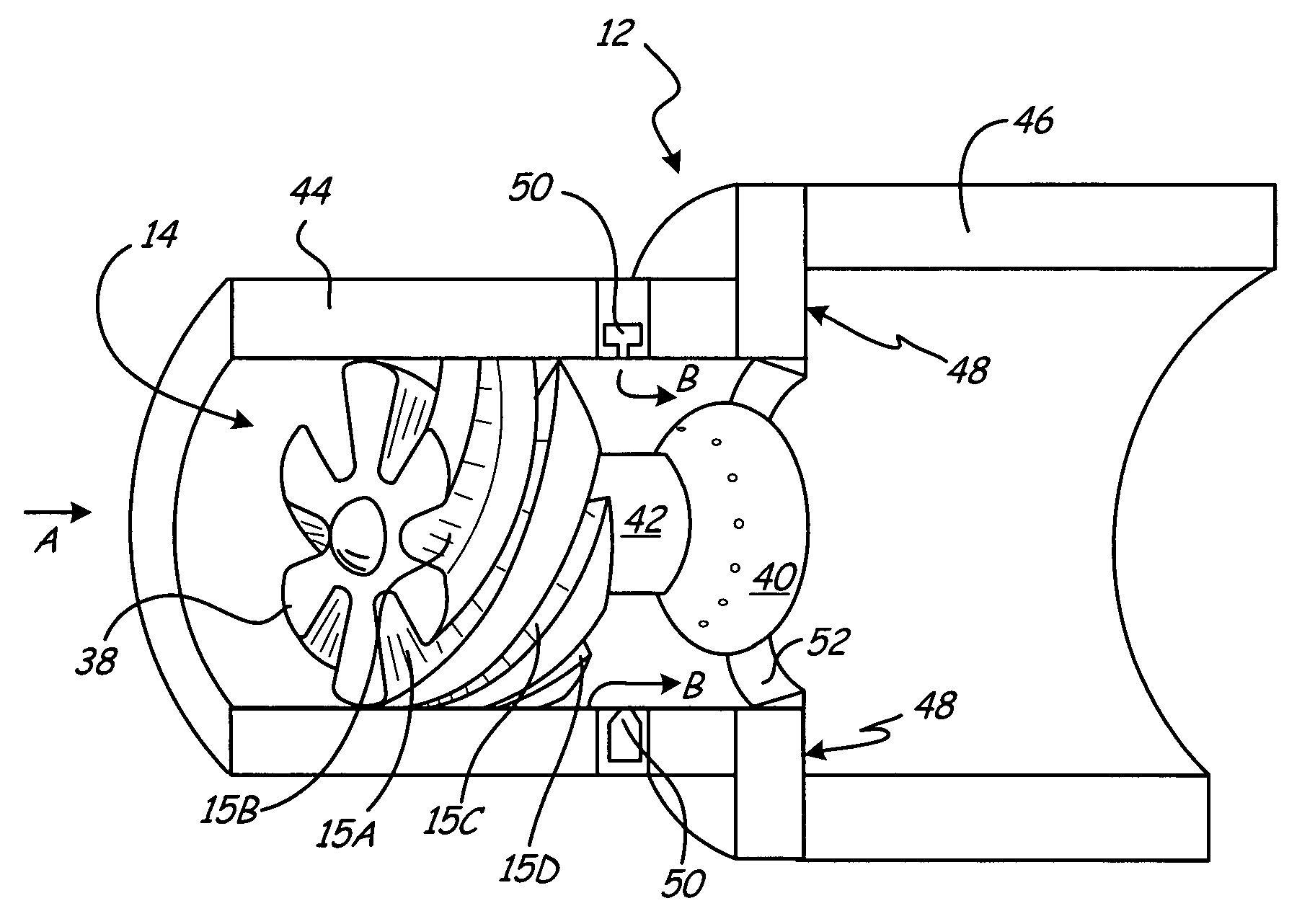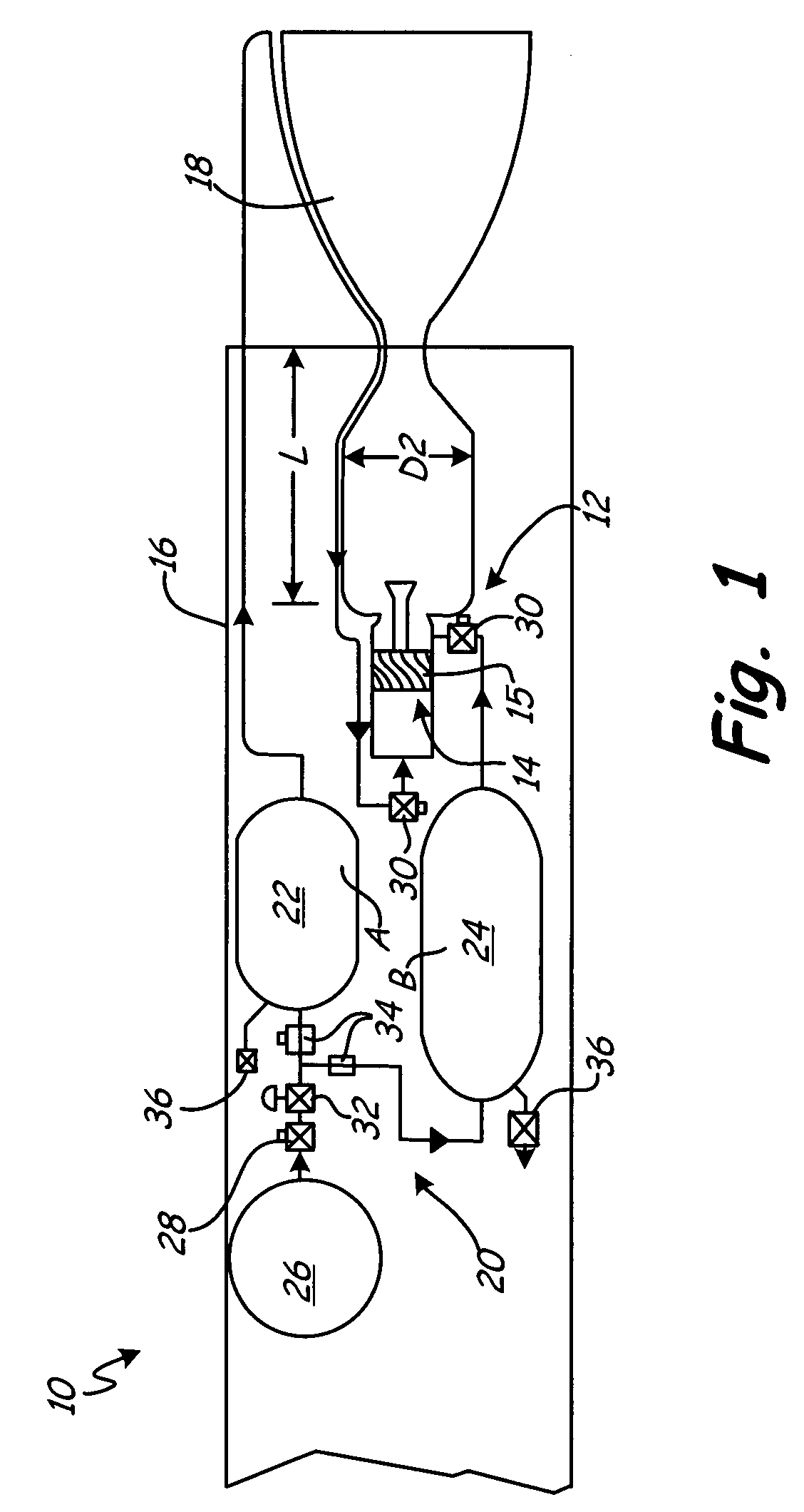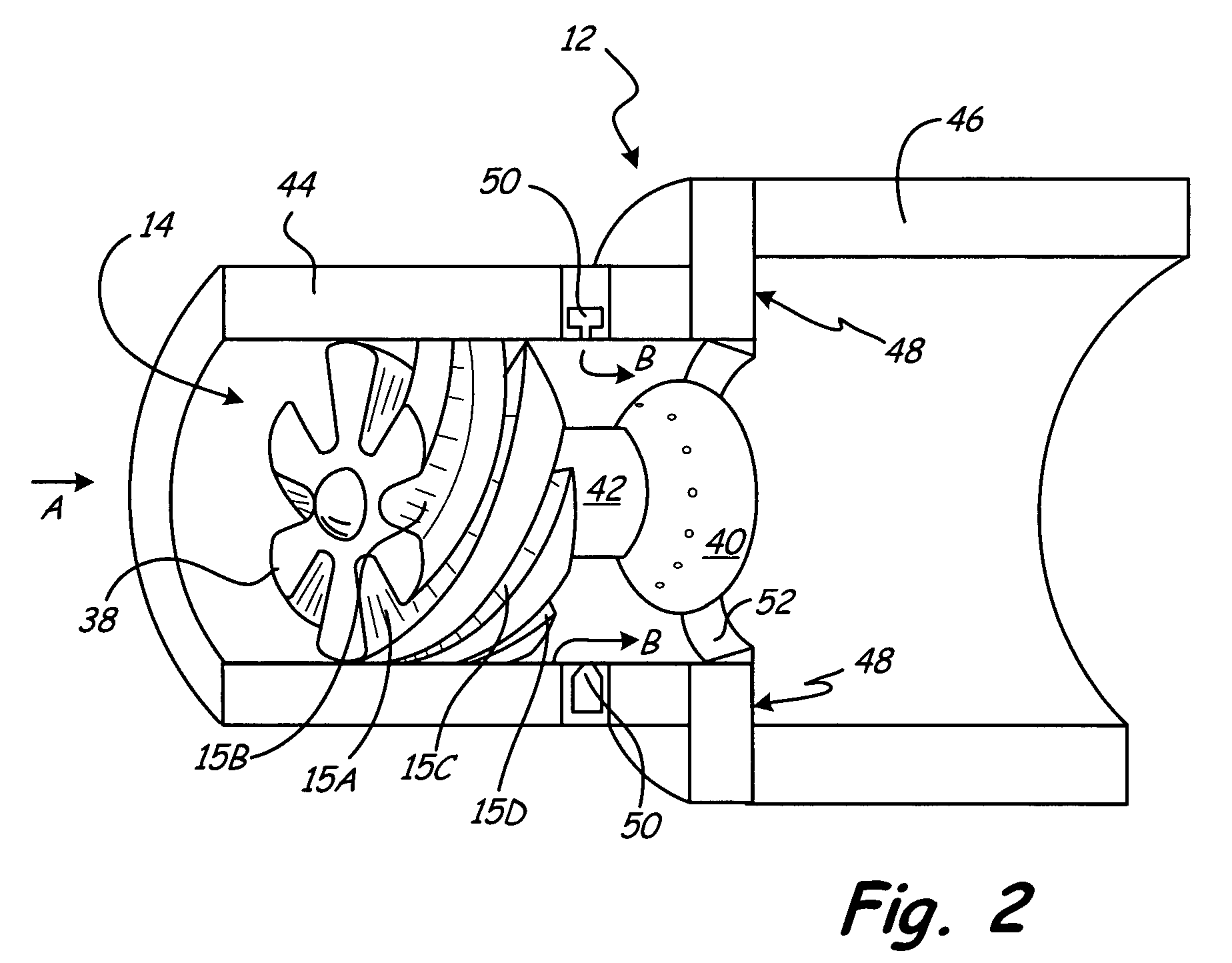Ultra-compact, high performance aerovortical rocket thruster
a rocket thruster, ultra-compact technology, applied in the field of low-thrust rocket propulsion thrusters, can solve the problems of inability to miniaturize the thruster system of small spacecraft, the rocket engine type is much too complicated, and the toxicity of hydrozine or mmh vapor, so as to broaden the scope of potential rocket engine thruster applications, improve the mixing and combustion process, and improve the propulsion performance
- Summary
- Abstract
- Description
- Claims
- Application Information
AI Technical Summary
Benefits of technology
Problems solved by technology
Method used
Image
Examples
Embodiment Construction
[0021]FIG. 1 shows a schematic of liquid bipropellant thruster 10 having aerovortical swirl-dump combustor 12 with ultra-compact, aerovortical swirl generator 14 having helicoid flow channels 15. Thruster 10 also includes thruster body 16, thrust nozzle 18 and gas pressure feed system 20, which can be configured for a variety of ultra-compact rocket engine applications; such as in-space satellite attitude and orbit control, in-space vehicle propulsion, or propulsion of some similar spacecraft. Thruster body 16 provides a housing for propellant constituent storage tanks 22 and 24, high pressure supply tank 26, high pressure gas valve (remote control) 28, propellant valves (remote control) 30, pressure regulator 32, check valves 34, and storage tank vent valves 36.
[0022]Rocket thruster 10 must carry an adequate supply of combustion constituents, typically an oxidizer and a fuel, for use in the combustion process necessary to generate thrust for propelling the spacecraft. Liquid fuel p...
PUM
 Login to View More
Login to View More Abstract
Description
Claims
Application Information
 Login to View More
Login to View More - R&D
- Intellectual Property
- Life Sciences
- Materials
- Tech Scout
- Unparalleled Data Quality
- Higher Quality Content
- 60% Fewer Hallucinations
Browse by: Latest US Patents, China's latest patents, Technical Efficacy Thesaurus, Application Domain, Technology Topic, Popular Technical Reports.
© 2025 PatSnap. All rights reserved.Legal|Privacy policy|Modern Slavery Act Transparency Statement|Sitemap|About US| Contact US: help@patsnap.com



